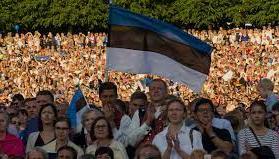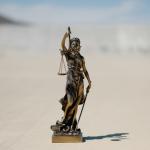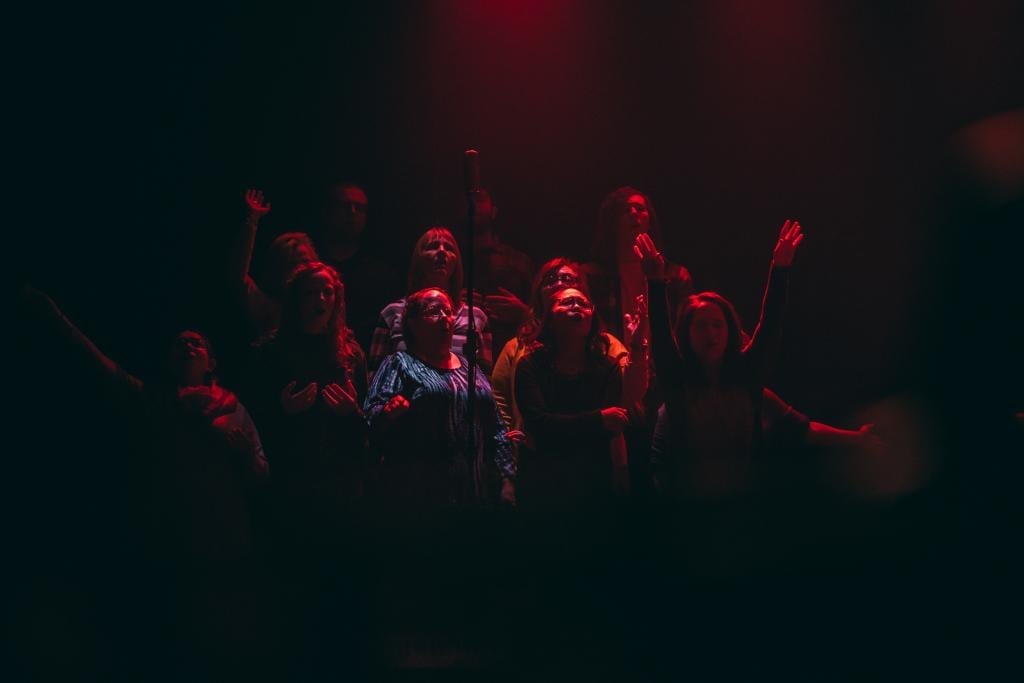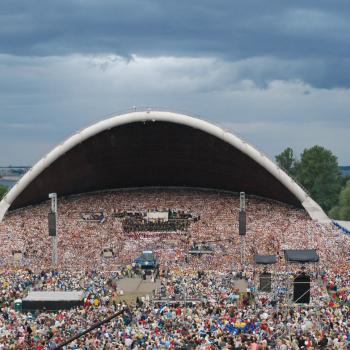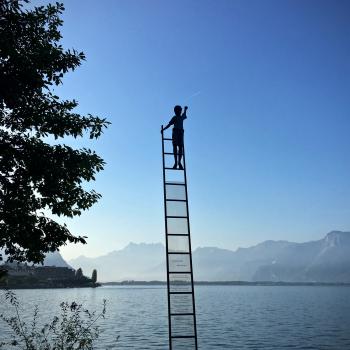During World War 2, both Hitler and the Russians laid claim to the country, like two bullies fighting over the pretty girl. As a result, approximately 25 percent of the population died. The Russians never left after the war.
An identity marked in song
Their identity has primarily been defined by others. Much of their history is marked by occupation and oppression and they’ve rarely been a free people. As a result, they’re not known for their universities, for their innovation, or their army. They aren’t known for great food, scientific exploits, or their soccer team.
They are known for their voices.
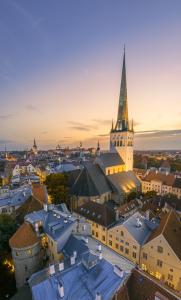
The country of 1.3 million people has more than 700 recognized choirs. Every five years the choirs gather for the Laulupidu, the largest amateur choir assembly in the world. The last four-day festival featured a single piece sung by more than 100,000 voices.
The annual assembly is a long and rich tradition, dating back to 1869.
We won’t back down
After the country was annexed by the Russians, the festival continued but they were forced to sing communist propaganda. But still, they sang.
When the Soviet block began to fold, one nation at a time, the Estonians didn’t gather angry dock workers, freedom fighters, or disaffected military leaders. Instead, they gathered to sing. For five years they sang songs — the banned songs. They sang songs of freedom, hope, and of God. 100,000’s of thousands gathered across the small country in groups large and small and expressed their heart’s desire, one note at a time. They sang the forbidden lyrics over and over again.
